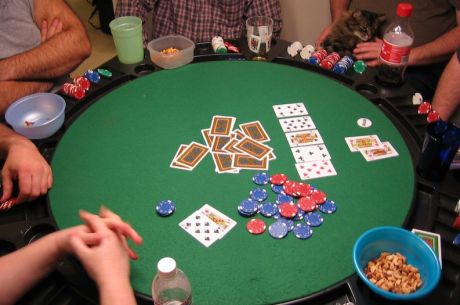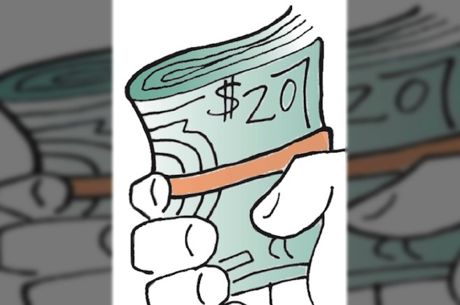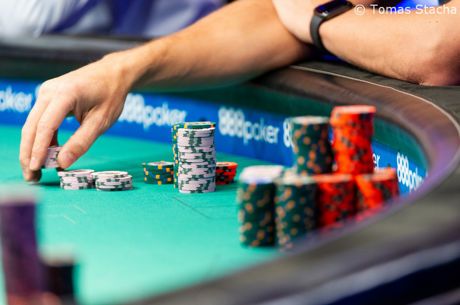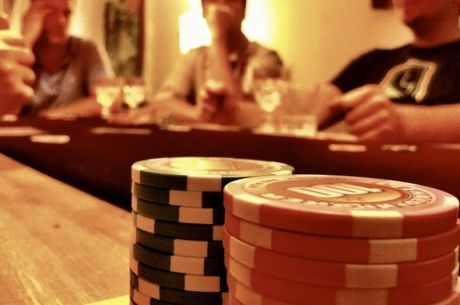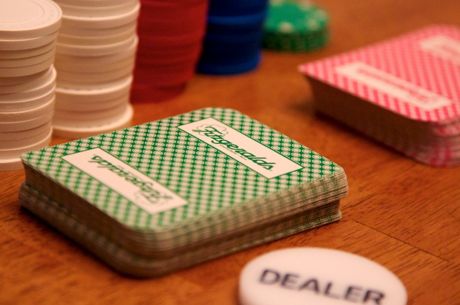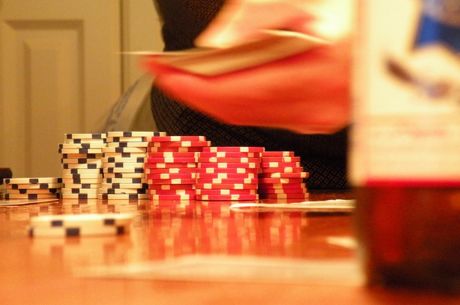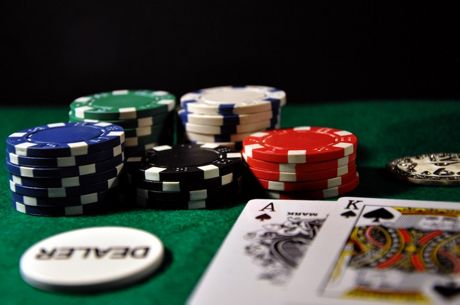Five Considerations When Playing Against Novice Players in Home Games

Over recent articles, we've looked at how to make money in your home game by exploiting the tendencies of loose-aggressive players, tight-passive players, and loose-passive players.
But what about that other variety of home-game player we occasionally encounter — the complete newbie who is more or less clueless about strategy and/or playing styles?
I'm referring to players who know the rules of poker but very little else. What's the best approach when playing against these players, both in terms of your own profit and other, larger goals associated with keeping a good home game going?
Let me give you some ideas about how to best deal with such novice players. Here are five considerations.
1. Consider the Long Run
You really have two objectives with new, inexperienced home game players. Sure, you want to win money from them during the poker session. But you want them to continue to be part of the poker world as well.
Regarding that latter goal, you don't want to make new players feel so miserable about losing that they don't ever return to your game. Sometimes these two objectives may seem at odds with each other, but they need not be. Go ahead and win their money, but be aware of how you are winning it.
The worst thing you can do is to appear rude, condescending, unhelpful, impatient, or overly aggressive. This will make new players feel either repelled or completely overmatched, disliking you in the process and vowing never to return (at least not to your game).
It's much better to be genuinely warm and easy to deal with, especially about the things that new players are apt to have difficulty with such as acting quickly or understanding the less obvious rules of play. Be a welcoming and friendly player.
In games with newbies, your best poker face is a welcoming smile. You'll probably end up enjoying the game more as well.
2. Be Helpful and Easy on the Rules
New players often won't know what they don't know. They may not understand the importance of acting in turn, of protecting their hands, of placing their bets in one motion, or even of the nomenclature of poker. They may say "raise" when they mean "bet." They may fold when they can check.
Don't scold or chastise them for their mistake. Be their guide and helper instead. When they make a misstep — perhaps betting out of turn, for example — smile or laugh as if it is a common and unimportant mistake that is easily corrected. Humor goes a long way toward relaxing people who are new to a game, and will encourage them to see the experience as a good time, as opposed to a humiliating defeat.
3. Expect Them to be Afraid
Most new players enter a game afraid. What they are primarily afraid of is looking foolish — we've already addressed that somewhat above. But they're also afraid of losing their money, which leads us into some strategic considerations for how to play against such players. You can take advantage of their fear of losing money in two ways.
First, you should respect their large bets. Newbies tend to be very cautious because they are afraid of the consequences of losing, so when they do get up the courage to bet big, be wary.
Second, you should keep in mind the fact that new players often don't trust their judgment regarding the strength of their hands, and they surely don't have much (or any) confidence in their ability to read that you are weak. This combination sometimes will allow you to bully them — not by looking tough, mean, or intimidating, but by looking sincere when betting your weak hands.
Ironically, it's the friendly, earnest player who is most respected by the new player, not the tough and aggressive looking one. So when you're stealing, be smiling warmly!
4. Recognize When They Have Given Up
There is a threshold of misery, beyond which new players will be ready to just throw in the rest of their chips and concede that they have lost what they brought to the game to lose. Pay attention and take note if it appears that moment has arrived.
Imagine the following scenario. Charlie, very new to the game, bought in for $100. He has been guarding his stack very carefully, playing very few hands. Even so, his stack has diminished. He has recently lost another $40 in a hand and has only about $20 left in his stack after about two hours of play.
Based on comments he's made, you don't think he is planning to buy in for any more. You might be tempted to bluff him out of the next pot you're both in — figuring he is guarding what little he has left. Rethink that strategy! It may very well be that he's given up on the game, at least for now, and is ready to fling his remaining $20 in with just about any hand. Wait for his aggression, and then tend to call when you have a moderately strong hand or better.
5. Don't Squeeze Out Everything
There's a famous poker expression, "You can shear a sheep a hundred times, but only skin 'em once."
With that in mind, there's no requirement that you completely clean out a newbie when he is unfortunate enough to sit in your game for the first time. You should always have an eye on inviting him back to your game. I'm not suggesting that you deliberately lose, but when you sense that your opponent has had enough and is getting discouraged, you don't have to be the aggressor to win his last buck.
Let him decide when he wants to play for his remaining chips, going out as the product of his own aggression. He'll feel better about you and your game if he busts out on his own terms.
Conclusion
There will be plenty of opportunities to win money from new home game players. The key is to make sure that you avoid humiliating him when you do so. Be warm, welcoming, smiling and helpful, so the new player genuinely enjoys your game, even while he's losing.
In the process, you may encourage him to return — and you'll enjoy the experience more yourself!
Ashley Adams has been playing poker for 50 years and writing about it since 2000. He is the author of hundreds of articles and two books, Winning 7-Card Stud (Kensington 2003) and Winning No-Limit Hold'em (Lighthouse 2012). He is also the host of poker radio show House of Cards. See for broadcast times, stations, and podcasts.
Photo: "" (adapted), slgckgc, .

